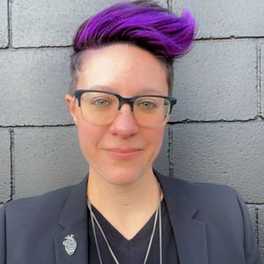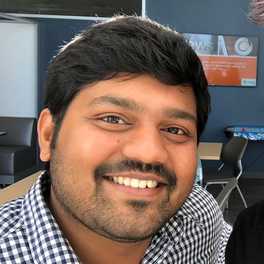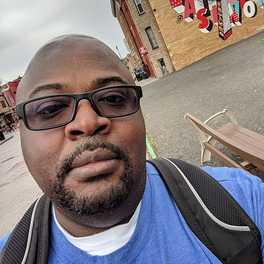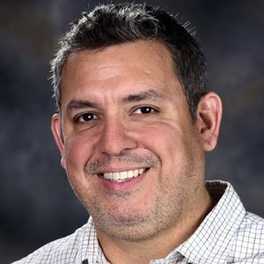Improving the online experience for Medicare beneficiaries with WECMS
Centers for Medicare and Medicaid ServicesWe are working to re-platform and redesign legacy systems for CMS, making it easier for millions of people to get the benefits they need.
100 M
Americans depend on CMS for health benefits
10
legacy applications migrated and rebuilt in Drupal
24x7
O&M support provided to critical healthcare systems
This is some of the best work I’ve seen in over 25 years of web development, done in an extremely complex environment. The stakes are high, and this team is doing a huge lift to make critical health programs easier to access.
Andy Hawks | Team Technical Lead, CivicActions
The challenge
The Centers for Medicare and Medicaid Services (CMS) provide healthcare benefits to millions of people every year. But the websites and digital tools that help people find and enroll in these programs were built on a myriad of aging technologies and were confusing to navigate. CMS needed to streamline and update its online platforms to improve the customer experience while establishing more efficient backend workflows for agency staff.
This is an enormous and complex task, involving the modernization of Medicare.gov, CMS.gov, CMS open data portals, and many other public facing apps that serve multiple user groups — including beneficiaries, caregivers, health providers, data professionals, and government stakeholders.
WECMS helps more than 100 million Americans every year apply, find, and enroll in healthcare programs. The information and tools provided are essential components in supporting CMS' goals of creating a truly consumer-focused, streamlined, efficient, and omni-channel experience for beneficiaries and their caregivers. The overall intent for this contract is to ensure continuity of operations for the Americans it serves and the WECMS program, which maintains, designs and implements open source software digital services for CMS’ flagship websites, tools, components and applications on Healthcare.gov, Medicare.gov, CMS.gov, and 7 Open Data catalogs. In addition to engineering and design continuous improvements on these established websites, this contract provides security compliance, devops, system infrastructure, content strategy, information architecture, training, documentation, content editor support, public call center dev support, Section 508 improvements, mobile application development, and tooling and systems expertise.
Client goal
When this multi-year transformation is complete, CMS will be able to deliver on its mission more effectively. CivicActions is providing agile development, DevOps, and human-centered design (HCD) services to help the agency:
- Improve the content editing experience for staff
- Modernize legacy systems and tools
- Replace proprietary technologies with open source
- Support active, informed healthcare consumption
Expertise
- User Research
- Human-Centered Design (HCD)
- Persona & Scenario Design
- Accessibility Compliance
- Content Strategy
- Workflow & Interaction Design
- Migration to Open Source
- Data Migration & Management
- Data Architecture
- DevSecOps
- Agile Development
- Information Security
- Service Design
- Scaled Agile Framework (SAFe)
- Mobile application development
- Scaled Agile Framework (SAFe)
Tools and technologies
- Akamai
- Jira
- Confluence
- Mural
- Figma
- AWS
- Splunk
- Drupal 10+
- Acquia Cloud
- Docker
- Github
- Jenkins CBJ/CBC
- DKAN v2
- U.S. Web Design Standards
- PHPUnit / Cypress / Behat
- Google Search Integration
- VictorOps / PagerDuty
- New Relic / StatusCake
Our approach
Collaboration is the key to success in a project of this scale and complexity. With multiple partner vendors (including our primary partner Fearless) and disparate stakeholders across many organizational layers, we work hard to keep lines of communication open and be up-front about potential problems.
Balancing stakeholder priorities, user needs, technical complexity, and CMS deadlines, we created a roadmap that minimizes risk and maximizes opportunities for success. Then we went to work on “quick wins” — tasks we could complete right away that would make the biggest difference for users.
Address the holistic customer experience
We knew that each CMS application is part of a huge public-facing ecosystem of digital tools, with many touchpoints. To address the entire experience that a person would have in navigating the systems, we drew on the agency’s own knowledge of their beneficiary community, working with them to refine and document how each person interacts with CMS online. The resulting holistic view helped us identify how we could improve that experience iteratively.

Adopt a data-driven strategy
To make sure we built the right solutions, we immersed ourselves in the CMS mission from the operational, technical, and UX perspectives. We dug into existing user research, reviewed analytics reports, conducted stakeholder interviews — then created user personas and journey maps to refine the project scope and goals. All this data is managed in a shared repository of user insights and project knowledge, which we refer to as we prioritize the work to be done.
Replace proprietary software with open source
We are “reverse engineering” multiple custom-built Microsoft.NET applications (such as the Medicare Eligibility and Premium Calculator and the congressionally-funded Physician Fee Schedule (PFS) Lookup Tool with modern, open source solutions. As we recreate all these applications in Drupal, we’re making guides and code documentation that outline the entire system — allowing CMS to maintain control of its own technologies and avoid vendor lock-in. We are also migrating CMS open data platforms from Socrata (proprietary) to an open source solution using DKAN 2.
Key outcomes
Clean and useful technology
CMS struggled to make use of technologies built on old, messy code that had been around for years. We are not only modernizing the CMS tech stack, we are documenting how it works and how to use it.
Accessible services for all
508 compliance is required, but we consider accessibility as more than a checkbox. Because CMS serves a population with a proportionately higher level of impairments, we put extra emphasis on accessibility best practices.
Agile delivery at scale
We are managing this project using the Scaled Agile Framework (SAFe), working iteratively with broad cross-team collaboration and stakeholder input across the organization. Value is delivered with releases every two weeks.
Intuitive digital tools
Beyond CMS websites, we are modernizing cost calculators, finders, mobile apps, interactive map models, open data site applications, and lookup tools that are used by providers and beneficiaries to perform critical healthcare tasks.
Well-informed solution
We apply human-centered design to understand the goals of end users and CMS stakeholders, while layering in a thorough understanding of the policies that underpin each program — so the end results meet real needs.
Ongoing technical support
To improve and maintain the CMS systems, we provide 24x7 operations and maintenance support, editor feature enhancements, guidance content and APIs per executive orders, and new content sections as needed.











